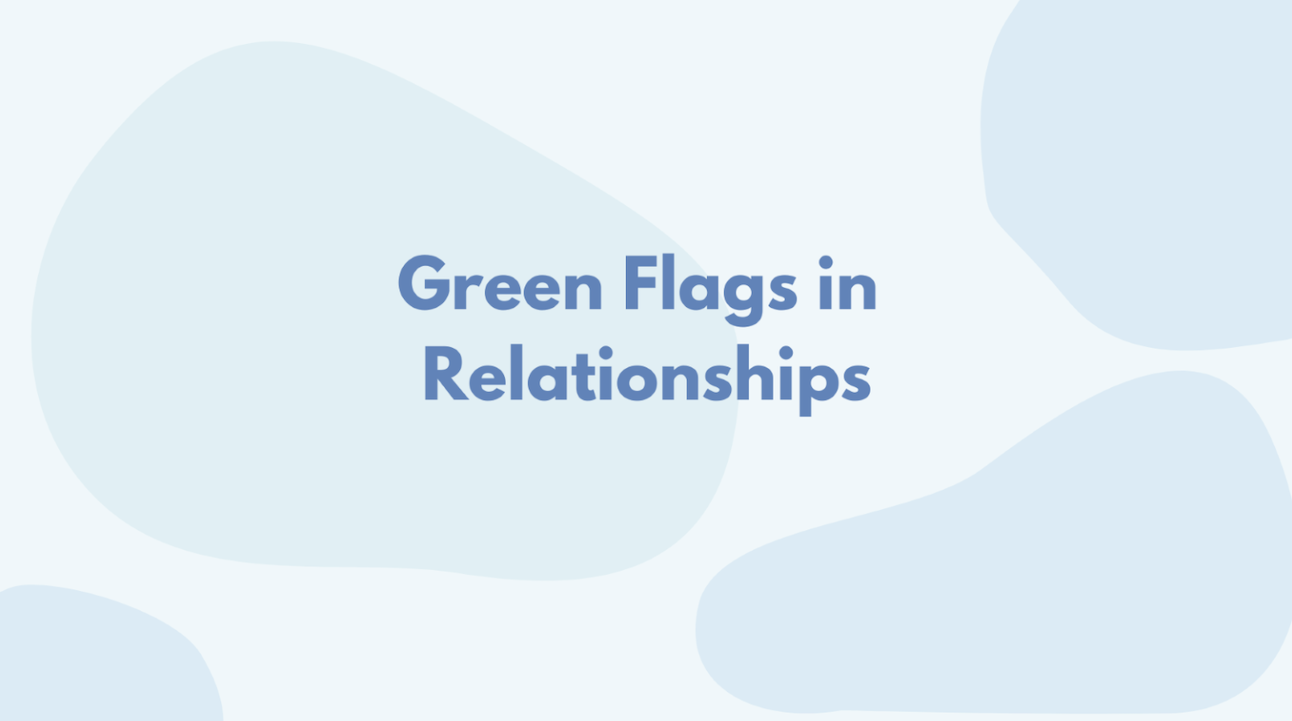Examples of green flags in relationships
1. Honours boundaries
Maintaining healthy boundaries is important in any relationship. Having healthy boundaries can help us to give permission to ourselves to say 'no' to things. When a person does not honour your boundaries, you may feel taken advantage of, depleted or intruded on.
2. Communicates openly
Open communication means being able to share information with others in an honest, transparent, consistent and dependable manner. It allows expression of thoughts, feelings, emotions and plans both assertively and clearly.
3. Offers emotional support
When someone shows you emotional support, they offer genuine compassion, reassurance and encouragement. Emotional support can look like physical acts of affection, verbal expression (such as validation of your feelings), or listening, amongst others.
4. Supports your personal growth
You feel supported by your partner. Forms of support may mean increased open communication about goals or behaviours (whether this is related, emotional, career, financial, physical etc goals) to ensure they understand what you're working towards as an individual and how best to support you. Your partner having an understanding of the support you need is crucial as this prevents situations where you may resent your partner due to lack of perceived support.
5. Listens to you
You feel heard by the person you are sharing with. They may make comments, nod their head, make encouraging sounds to continue (such as 'mmm'), put away distractions and importantly they are sincere and interested in what you have to say.
6. Compromises when necessary
Compromise smooths over conflicts and ensures fairness is maintained in a healthy way. You and your partner should have the room to maintain your own personal thoughts, beliefs and preferences. Compromise in a healthy relationship looks like two individuals meeting in the middle, finding a space for you both to maintain your preferences, or finding an alternative altogether. Most importantly, compromise should not be followed by your partner causing induced feelings of guilt due to their compromising behaviour.
7. Non-judgemental
A judgment-free space invites comfort and understanding. There should be space for you to openly discuss your thoughts, feelings or actions with your partner despite knowing there may be something your partner does not understand or agree with. With these conversations your partner has a better understanding as to why you think, feel or act this way and will reduce the judgment they may have previously held against that idea.
8. Admits when they have made a mistake
Everybody makes mistakes. Admitting when you have made a mistake can be difficult for your ego and self-image. However; admitting when you are wrong shows the other person that you are capable of being objective, compassionate, and acknowledge that you are not 'perfect'. It also builds trust in your relationship!
9. Respectful
Respect means accepting someone for who they are, even if you don't agree with them or they are different to you. Respect in a relationship builds trust, feelings of safety and general wellbeing.

